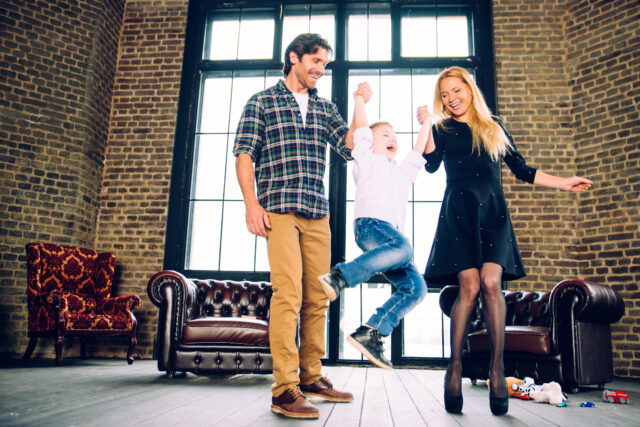You wouldn’t think birth order has anything to do with brain power, but it actually does.

According to a study published in the Journal of Human Resources, first-born children had consistently higher reading and vocabulary scores than those born later in their families. Why might that be? Researchers don’t know, but I feel like it could be down to these things.
1. They’ve got their parents’ undivided attention.
 Source: Unsplash
Source: Unsplash For a while, first-borns are the sole focus of their parents’ world. They basically have two personal tutors who hang on their every word and celebrate when they learn to use a spoon. No wonder they end up being so smart!
2. They’re the guinea pigs for parenting experiments.

Parents often try out all sorts of “genius-making” techniques on their first born. Baby Mozart, anyone? By the time the second kid rolls around, parents are just happy if they remember to feed them.
3. They’ve got to figure things out on their own.

There’s no older sibling to show them the ropes, so first-borns have to use their noggin to solve problems. How to reach the cookie jar? How to blame the dog for drawing on the walls? It’s all critical thinking practice!
4. They’re often given more responsibility.

Being in charge of their younger siblings means first-borns get a crash course in leadership, negotiation, and conflict resolution. It’s like a miniature MBA program, but with more nappies and temper tantrums.
5. They’ve got to set the bar high.

Parents often have sky-high expectations for their first-born. No pressure or anything, but they’ve got to pave the way for their siblings and make mum and dad proud. Nothing like a bit of pressure to sharpen the mind!
6. They get to be the teacher.

Explaining things to younger siblings is like a constant revision session. Plus, if you can make a toddler understand why the sky is blue, you can probably explain anything to anyone.
7. They have to be creative with entertainment.
 Source: Unsplash
Source: Unsplash Before siblings come along, first-borns have to entertain themselves. This means they become masters of imagination and creativity. Who needs playmates when you’ve got a cardboard box and a marker pen?
8. They get more ‘grown-up’ conversations.

Parents often speak to their first-born more maturely, especially before siblings arrive. So while the younger kids are still getting baby talk, the eldest is discussing Brexit over their morning Weetabix.
9. They’re the family trailblazers.
 Source: Unsplash
Source: Unsplash First-borns get to do everything first – first to go to school, first to stay up late, first to get a phone. All this newness means their brains are constantly adapting and learning. Meanwhile, the younger ones are just following the well-worn path.
10. They’ve got a leg up on language skills.

With adults as their main conversation partners early on, first-borns often develop a more extensive vocabulary. By the time they’re five, they’re casually dropping words like “preposterous” into conversation while their younger siblings are still mastering “mine!”
11. They’re the family guinea pigs for independence.

Parents tend to be more cautious with their first-born, inadvertently teaching them problem-solving skills. “How do I convince Mum to let me go to that party?” It’s amazing the things they can work out to get what they want.
12. They get more one-on-one reading time.

Before siblings come along, first-borns often enjoy undivided story time attention. So while the younger ones are fighting over who sits on Dad’s lap, the eldest has already memorized the entire Dr. Seuss collection.
13. They learn from their parents’ mistakes.

Let’s face it, parents are often clueless with their first kid. First-borns learn to adapt quickly to their parents’ trial and error, developing resilience and flexibility in the process.
14. They’re often more ambitious.

With all eyes on them, first-borns frequently develop a stronger drive to achieve. It’s not their fault they’re overachievers — they’re just trying to live up to the unrealistic family legend they’ve become!
15. They get a head start on school.

By the time they start school, first-borns have had years of undivided educational attention at home. It’s like they’ve had private tutoring while their future siblings were still a twinkle in their parents’ eyes.
16. They learn the art of negotiation early.

Being the first to challenge parental authority, first-borns become master negotiators. By the time they’re teens, they could probably broker world peace — or at least convince Dad to extend their curfew.
17. They’ve got more pressure to succeed.

With no older sibling setting the bar, first-borns often feel pressure to aim high. It’s like being thrust into a game show where the rules are made up and the points don’t matter, but everyone expects you to win anyway.
18. They’re the test subjects for parental boundaries.

First-borns have to figure out where the lines are drawn, often through trial and error. This constant boundary-testing is basically a full-time job in critical thinking and social dynamics. Meanwhile, the younger kids get a rulebook handed to them on day one.




